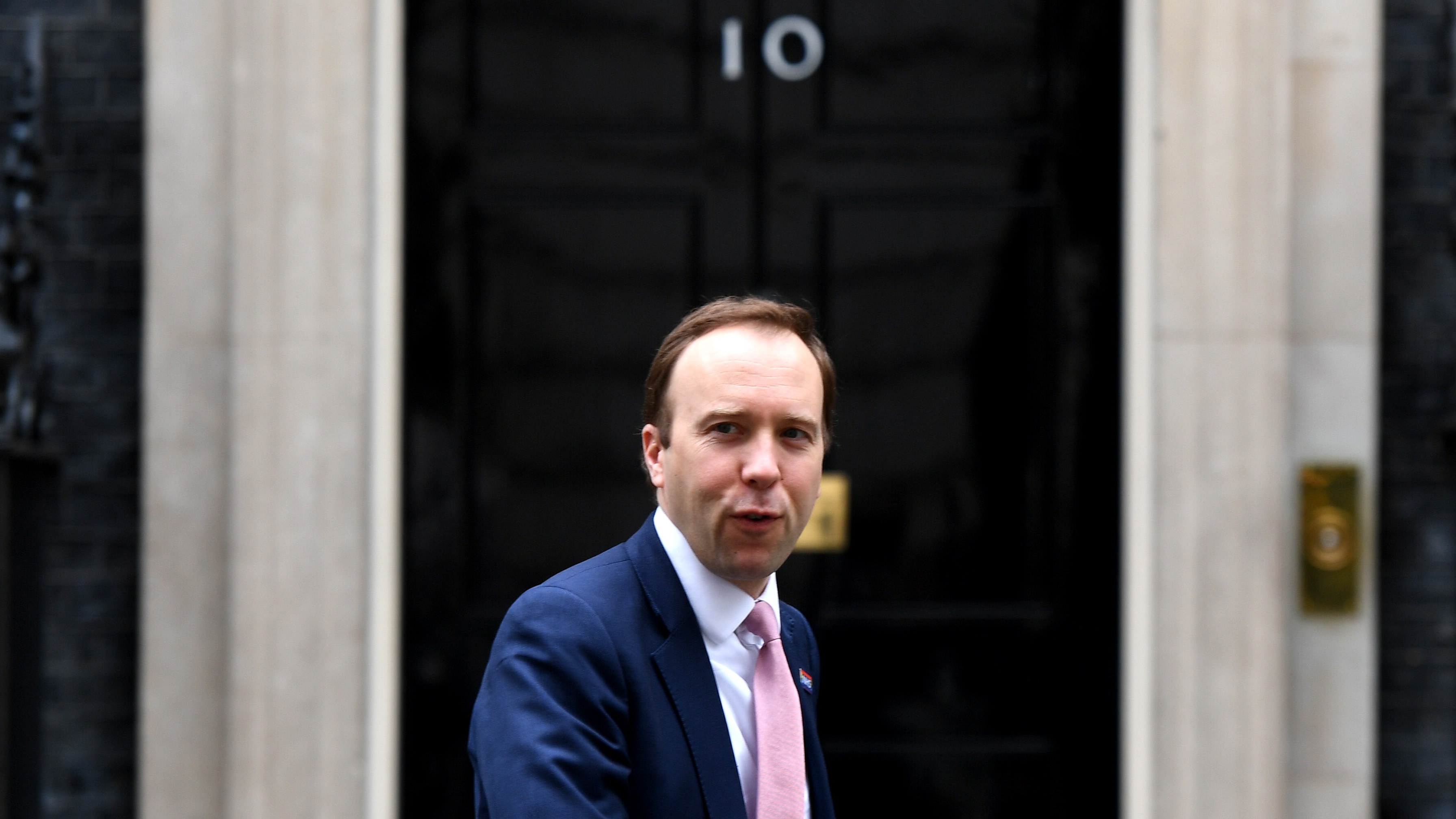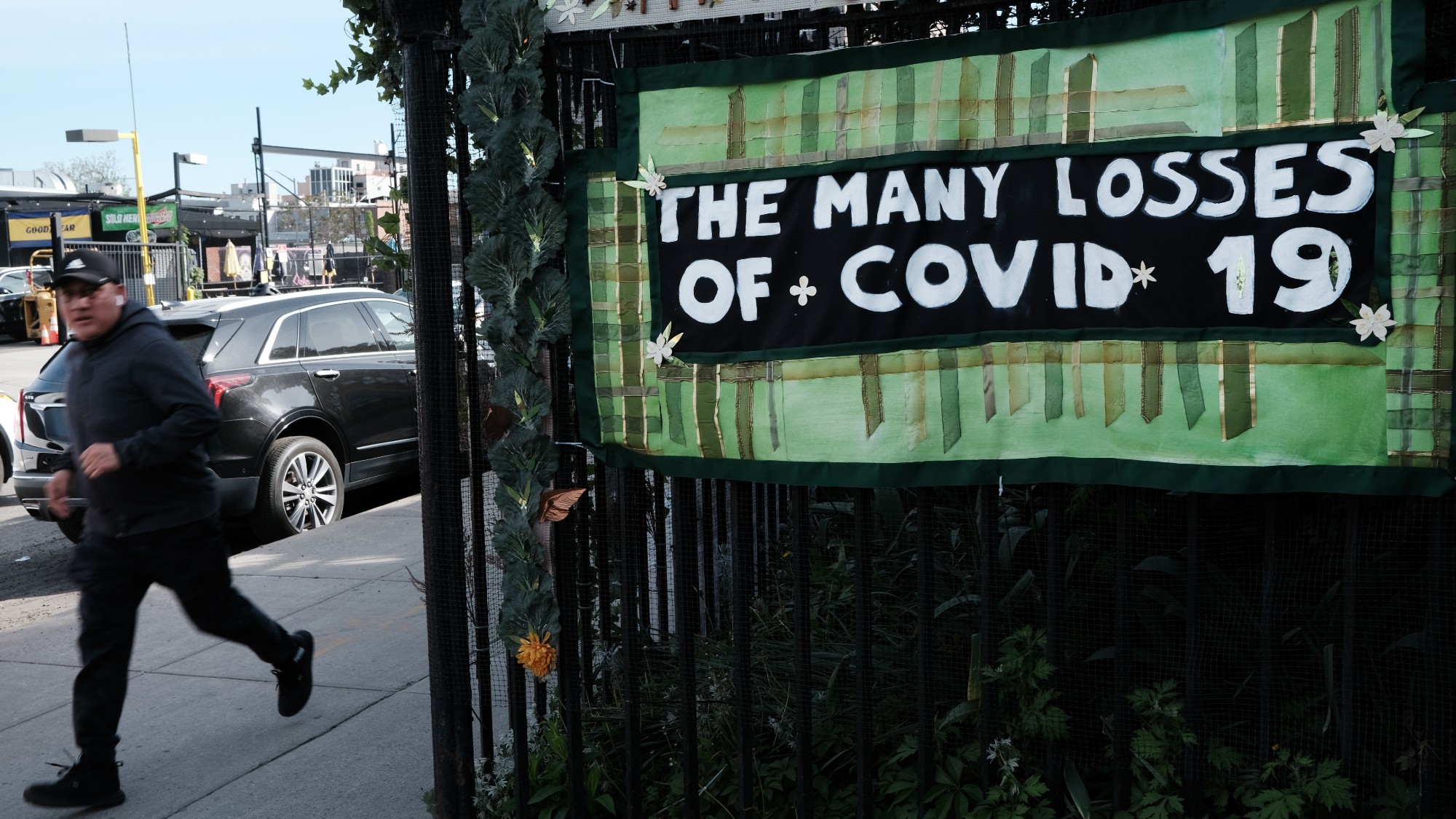Reaction: UK tackling more than 100 coronavirus outbreaks a week, reveals Hancock
Health minister says flare-ups being contained ‘swiftly and silently’ through local lockdowns

A free daily email with the biggest news stories of the day – and the best features from TheWeek.com
You are now subscribed
Your newsletter sign-up was successful
Matt Hancock has revealed that “targeted action” is being taken to battle more than 100 local coronavirus outbreaks across the UK every week.
In an article for The Telegraph, the health secretary says that increased testing capacity means “we can take more targeted local action and less national lockdown, to restore the freedom of the majority while controlling the virus wherever we can find it”.
Some of these local lockdowns “will make the news but many more are swiftly and silently dealt with”, he writes.
The Week
Escape your echo chamber. Get the facts behind the news, plus analysis from multiple perspectives.

Sign up for The Week's Free Newsletters
From our morning news briefing to a weekly Good News Newsletter, get the best of The Week delivered directly to your inbox.
From our morning news briefing to a weekly Good News Newsletter, get the best of The Week delivered directly to your inbox.
The publication of Hancock’s article comes a day after 73 cases of Covid-19 were confirmed at a farm in Herefordshire. The outbreak has seen 200 workers put under lockdown and has fed “concerns over further outbreaks happening as seasonal workers gather for harvest time”, says the newspaper’s political editor Gordon Rayner.
Today marks two weeks since Hancock announced that Leicester would become the first UK city to be placed under local lockdown, a decision that the health secretary said would be reviewed this week, ITV reports.
Officials will continue to “hunt down the virus” by targeting areas of concern, aided by “the incredible efforts of local authorities – all of whom have stepped up and published their local outbreak control plans in line with the end of June deadline”, Hancock writes.
“The government strategy of targeted local responses whenever data suggests a coronavirus flare-up is a key part of its ongoing plan to reopen British businesses in different phases,” the BBC reports.
A free daily email with the biggest news stories of the day – and the best features from TheWeek.com
In the latest easing of lockdown measures, beauty salons, spas, tattoo parlours and nail bars in England are welcoming back customers from today.
According to Hancock, more than 250 testing centres are now operating nationwide, and the government is also “deploying a dozen walk-in testing centres”.
“Where we find a cluster or outbreak, we send in extra testing, including mobile testing units that can be deployed anywhere in the country,” he adds.
The BBC says that “clusters of cases” in hospitals, factories or schools will be dealt with by closing the premises.
The A&E unit in a hospital in Boris Johnson’s local constituency of Uxbridge and South Ruislip has already been shut owing to a “coronavirus spike”, the Financial Times reports.
About 70 staff at Hillingdon Hospital are also self-isolating after testing positive for Covid-19 or because of contact with an infected person, in an outbreak that showed the “potential for spikes in the disease to disrupt services as the country starts to reopen”, the newspaper adds.
Asked during an interview on BBC Breakfast what constituted a coronavirus outbreak, Justice Secretary Robert Buckland said each case would be treated separately, but added that “I think we know it when we see it”.
Pushed on whether the virus spreading outside of a household or social bubble would constitute an outbreak, Buckland added: “I defer to the experts in this.
“They know what an outbreak constitutes when they see it, and I think with each one that we see we get more knowledgeable, more sophisticated, and are able to respond in ever more appropriate ways.”
Joe Evans is the world news editor at TheWeek.co.uk. He joined the team in 2019 and held roles including deputy news editor and acting news editor before moving into his current position in early 2021. He is a regular panellist on The Week Unwrapped podcast, discussing politics and foreign affairs.
Before joining The Week, he worked as a freelance journalist covering the UK and Ireland for German newspapers and magazines. A series of features on Brexit and the Irish border got him nominated for the Hostwriter Prize in 2019. Prior to settling down in London, he lived and worked in Cambodia, where he ran communications for a non-governmental organisation and worked as a journalist covering Southeast Asia. He has a master’s degree in journalism from City, University of London, and before that studied English Literature at the University of Manchester.
-
 Vietnam’s ‘balancing act’ with the US, China and Europe
Vietnam’s ‘balancing act’ with the US, China and EuropeIn the Spotlight Despite decades of ‘steadily improving relations’, Hanoi is still ‘deeply suspicious’ of the US as it tries to ‘diversify’ its options
-
 Best UK fashion exhibitions in 2026
Best UK fashion exhibitions in 2026The Week Recommends See much-loved and intriguing items from designers and style icons right where they belong: on display
-
 Rock Villa, Bequia: a hidden villa on an island epitomising Caribbean bliss
Rock Villa, Bequia: a hidden villa on an island epitomising Caribbean blissThe Week Recommends This gorgeous property is the perfect setting to do absolutely nothing – and that’s the best part
-
 The high street: Britain’s next political battleground?
The high street: Britain’s next political battleground?In the Spotlight Mass closure of shops and influx of organised crime are fuelling voter anger, and offer an opening for Reform UK
-
 Is a Reform-Tory pact becoming more likely?
Is a Reform-Tory pact becoming more likely?Today’s Big Question Nigel Farage’s party is ahead in the polls but still falls well short of a Commons majority, while Conservatives are still losing MPs to Reform
-
 Taking the low road: why the SNP is still standing strong
Taking the low road: why the SNP is still standing strongTalking Point Party is on track for a fifth consecutive victory in May’s Holyrood election, despite controversies and plummeting support
-
 What difference will the 'historic' UK-Germany treaty make?
What difference will the 'historic' UK-Germany treaty make?Today's Big Question Europe's two biggest economies sign first treaty since WWII, underscoring 'triangle alliance' with France amid growing Russian threat and US distance
-
 Is the G7 still relevant?
Is the G7 still relevant?Talking Point Donald Trump's early departure cast a shadow over this week's meeting of the world's major democracies
-
 Angela Rayner: Labour's next leader?
Angela Rayner: Labour's next leader?Today's Big Question A leaked memo has sparked speculation that the deputy PM is positioning herself as the left-of-centre alternative to Keir Starmer
-
 Is Starmer's plan to send migrants overseas Rwanda 2.0?
Is Starmer's plan to send migrants overseas Rwanda 2.0?Today's Big Question Failed asylum seekers could be removed to Balkan nations under new government plans
-
 'There is a certain kind of strength in refusing to concede error'
'There is a certain kind of strength in refusing to concede error'instant opinion 'Opinion, comment and editorials of the day'